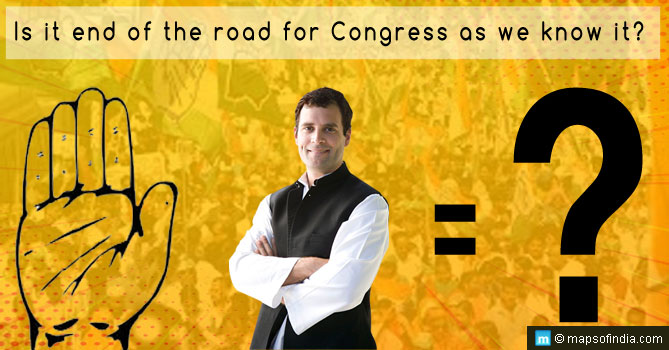When the entire nation was focused on what Prime Minister Manmohan Singh’s reply would be to the ceasefire violations in his speech from the Red Fort, Kashmir had its own share of trouble. The so called ‘heaven on earth’ has seen it all, from wars to infiltrations. At a time when normalcy was thought to be returning in the valley, communal tension erupted in the silent town of Kishtwar which eventually extrapolated to the national scene. The consequence of the tension was so magnanimous that after a couple of days when the PM visited the region, the entire valley was under a spell of curfew.
The seeds of the tension reportedly were sown as an altercation between two bikers on the streets. The incident occurred when a large number of people belonging to the Muslim community were on the verge of returning to their homes after prayers at the local mosque of Kishtwar. Within no time, the minor altercation turned into a group clash and subsequently magnified into a communal clash. The incident not only had an adverse impact on other communally fragile areas of Jammu, but its aftershocks were felt in the national political scene as well. The political parties wasted no time to gain political mileage out of the issue as senior Bharatiya Janata Party (BJP) leader Arun Jaitley rushed to Kishtwar, but the authorities did not allow him to proceed from the Jammu airport. He was detained at the airport for hours and subsequently flown back to New Delhi. Immediately, sniffing the magnitude which the trouble may acquire, curfew was imposed in seven out of the ten districts in the Jammu division. As it has been customary for the past two decades, the Army was called out in both Kishtwar and Jammu to prevent escalation of further tension in the regions. Although the move help in the shorter run but tension could still be felt even a week after the incident.
The political scene in the state presented a dismal picture as Jammu and Kashmir’s Minister of State for Home Sajjad Kitchloo, who represents Kishtwar in the Assembly, had to leave his post and bow out of office when the opposition by the BJP and other right-wing parties in the J&K assembly for his removal grew. The BJP accused him of being responsible for the trouble. It said that he was present in the town and as the home minister, did not do anything to prevent it. However, the party could not establish and prove the involvement of the minister beyond this allegation. However, yielding to national pressure, Chief Minister Omar Abdullah asked his colleague to put in his papers and resign. Post this incident the CM also ranted his ire in the social networking site of Twitter warning vested interests and factions of not to take political advantage of the incident. The government also ordered a judicial probe into the incident by a retired High Court judge. The Chief Minister has also blamed the centre for neglecting the state interests in his Independence Day speech. After his resignation, Kitchloo retaliated and blamed the BJP for the clash. He said the situation would have been worse had he not restrained as many as 25,000 Muslims who were pitched against some 15,000 Hindus. According to a statement issued by Kitchloo, the environment was tense and passions ran high among those who had gathered for the prayers. It was only for the restraining orders of the police and the efforts of the paramilitary forces that the gathering mob was dispersed. This step alone is said to have saved more than five hundred people who would have fallen prey to a mass massacre.
The political parties however could not resist from getting involved in a blame game. Neither Kitchloo’s resignation nor the judicial probe ordered stopped accusations and counter accusations against each other by the ruling National Conference and the BJP. The Chief Minister, Omar Abdullah cited the communal riots at Godhra in Gujarat in 2002 and asked the BJP if any official from the state or union government had resigned after those riots. It is interesting to note that in 2002, power wrested with the BJP, both in the centre and the state of Gujarat. With the Congress, his party’s partner in the ruling coalition, maintaining silence, he was left to present his case for himself. The Left parties, too, criticized him, and Mayawati, the Bahujan Samaj Party supremo sought his dismissal. The Omar Abdullah government is already faced with the failure to check the resurgence of militancy in the State which is evident from the high number of ceasefire violations along the LoC and unemployment in the state. With the Kishtwar fire spreading to Jammu and other districts, political analysts feared of a repeat of the 2008 agitation following the transfer of land to the Amarnath shrine board. But this time, timely action by the Army saved the situation though most of Jammu province remained under curfew for many days.
Hence, it would be interesting whether Kashmir continues its pendulum swinging from violence to normalcy or the state government comes up with strong measures to restore normalcy in the valley.
Read More:
Who was Burhan Wani?
Government’s Outreach to Youth From Kashmir
Militant Groups in India
Can The Kashmir Issue Be Ever Resolved Through Peace Talks?




